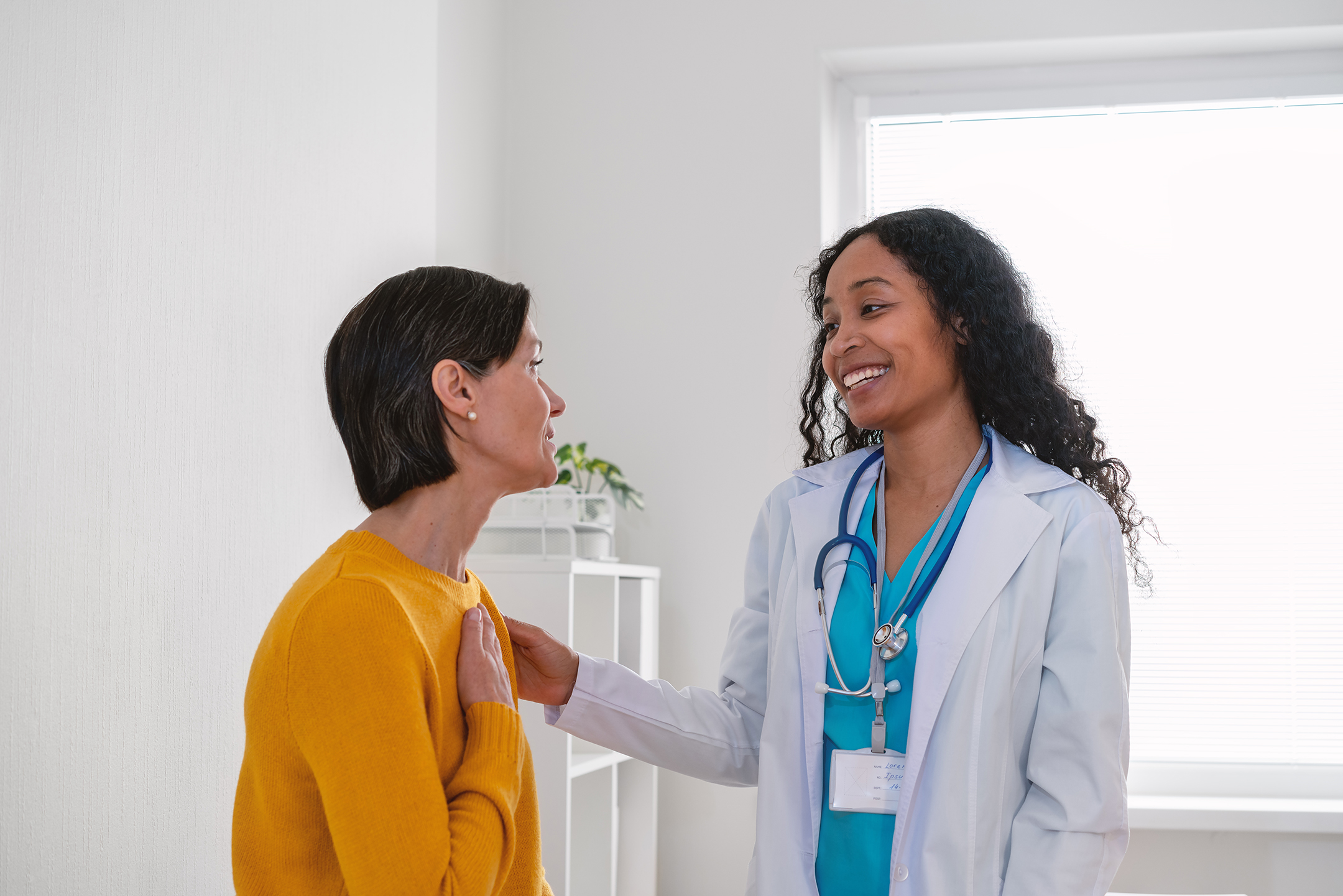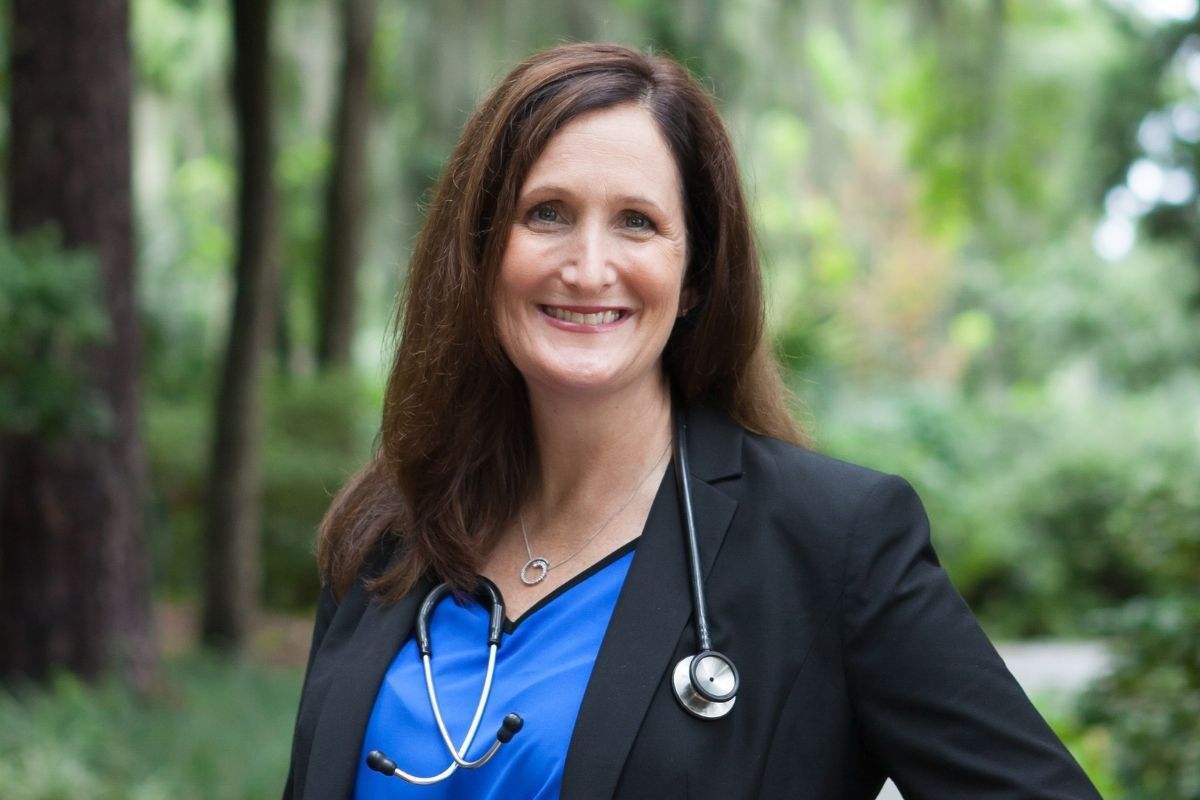Enrolling in clinical trials
Clinical trials advance treatments and care so people with type 1 diabetes can live fuller, healthier lives.

Clinical trials
Critical to making type 1 diabetes a condition of the past
For a treatment, drug, or device to make it into the hands of people with type 1 diabetes (T1D), it must first complete a vital step—a clinical trial.
Currently, there are over 300 clinical trials underway to prevent, cure, and treat T1D and its complications. Enrolling in these clinical trials as quickly as possible is mission critical.
We’re here to make it as easy as possible for every member of this incredible community to learn more about type 1 diabetes clinical trials and consider participation.
Learn more about clinical trials
Despite how critical clinical trials are to finding therapies to cure, prevent, and treat T1D, many are delayed due to slow enrollment, adding cost and prolonging the results. Participating in a clinical trial is a great way to contribute to a future without T1D!

Visit our partners at Antidote to match with clinical trials you might be eligible for—all in under a minute.
Our Clinical Trial Education Volunteers (CTEVs) are highly trained to answer questions you may have or connect you to local clinical trial coordinators.
Sign up for our monthly research newsletter, The Pipeline, for the latest in type 1 diabetes science and clinical research.

We want every member of the diverse T1D community to be aware of clinical trials, how to participate, and where to find information. The next generation of breakthroughs depends on it!”
Clinical trials FAQs
A clinical trial is a research study involving human volunteers that tries to answer a specific health question. Clinical trials closely monitor people’s progress as they take part in the study of an investigational drug, device, or method of treatment that has not been approved by the FDA for that specific indication. Carefully conducted clinical trials are the gold standard to find treatments that work. Whether it’s an everyday, over-the-counter treatment, or the latest and greatest medical device, it went through the rigorous testing process of a clinical trial.
- You may get access to new treatments and technologies not available to the public. You may also have access to top diabetes clinics and researchers while enrolled in the clinical trial.
- But one thing is certain: you will feel empowered knowing that your contribution to clinical research will help advance medical treatments and technologies for future generations!
There are many clinical trials that a person with long-standing T1D diagnosis can enroll in. Go to the Breakthrough T1D Clinical Trials Connection, and enter where you live, the distance you can travel, and other attributes to be matched with clinical trials that you may be eligible for. You can even get up-to-date information on new trials when you enter your email address. Find your local Breakthrough T1D CTEV to discuss clinical trials in your area or virtual trials
All clinical trials have guidelines, called eligibility criteria, about who can participate. The criteria are based on such factors as age, sex, stage of disease, previous treatment history, and other medical history. These criteria help to reduce the risk to an individual and variation within the study, and to ensure that the researchers will be able to answer the questions they plan to study. Therefore, not everyone who applies for a clinical trial will be able to participate.
In clinical trials, experimental drugs are often compared with placebos (a treatment with no therapeutic value) to evaluate the treatment’s effectiveness.
Breakthrough T1D has an easy-to-use tool called the Clinical Trials Connection, which asks users simple questions—about where they live, the distance they can travel, and other characteristics—to match them with trials for which they are eligible. Currently, there are more than 300 clinical trials for people living with T1D and T1D-related complications underway.
Currently, there are more than 300 clinical trials for people living with T1D and T1D-related complications under way.
Unfortunately, no. Many clinical trials are delayed or fail because doctors cannot find enough people to take part.
What are clinical trials?
What are clinical trials and what impact do they have on your health and the health of those around you? Breakthrough T1D is here to explain it!
Clinical trials and you
Learn more about the importance of clinical trials and how you can get involved to help improve the lives of all people with type 1 diabetes.
Screening and early detection for T1D
Learn how screening and early detection for type 1 diabetes can help advance research on how to delay and ultimately prevent T1D from occurring.
Currently recruiting research in type 1 diabetes
| Currently Recruiting Disease-Modifying Therapy Clinical Trials Learn about currently recruiting clinical trials for disease-modifying therapies. |
| Currently Recruiting Cell Therapy Clinical Trials Learn about currently recruiting clinical trials for cell therapies. |
| Currently Recruiting Virtual Clinical Trials Learn about currently recruiting clinical trials that are being conducted virtually. |
Clinical trial spotlight: FABULINUS
The phase 2 FABULINUS trial will test if frexalimab can preserve insulin production by beta cells, as measured by C-peptide. Frexalimab is a disease-modifying therapy that dampens the immune response by blocking CD40L on immune cells.
To be eligible to participate, you must be between 12-35 years old, have been newly diagnosed with T1D in the last 90 days, and require external insulin therapy.
Meet clinical trial participants
Hear from real people who participate in type 1 diabetes clinical trials:
Clinical Trial Education Volunteers
Your key to participation!
Our national team of Clinical Trial Education Volunteers (CTEVs) are highly trained to answer any questions you may have or introduce you to the clinical trial team near you.
Jude Restis: jrestis@yahoo.com
Laura Tremblay: ldtremblay71@gmail.com
Bithika Thompson: Thompson.Bithika@mayo.edu
Northern California:
Kim Fisher: kimfisherschwab@gmail.com
Arshia Baig: cpa.baig@gmail.com
Joe Carlino: carlino1@earthlink.net
Vanessa Larco: vanessa.larco@gmail.com
Kirin Jamison: kirinj@gmail.com
Southern California:
Jeannette Hacker-Stratton: jstratton@coh.org
Allison Orechwa: allieot1d@gmail.com
Meredith Coors: meredithcoors@gmail.com
Marjorie Lazarre: majorie.lazarre@ynhh.org
Atlanta area:
Kim Kukler: kimkukler@gmail.com
Other areas:
Holly Hailey: hollyhailey@comcast.net
Donny Harris: donnyharris1917@gmail.com
Tampa area:
Craig Bobik: cbobik32@gmail.com
Orlando and Jacksonville areas:
Anna Casu: anna.casu@adventhealth.com
Palm Beach:
Steve Fried: sfried1017@gmail.com
Mike Patipa: mpatipa@comcast.net
Stephanie Pfaff: Stephaniepfaff23@gmail.com
Arlene Stach: arlene.stach.t1d@gmail.com
Jamie Felton: jamifelt@iu.edu
Julie Coffey: julie-coffey@mchsi.com
Karissa Thompson: karissathompson1@gmail.com
Kelly Hoenig: kellyhoenig@gmail.com
Emily Rapp: emilybrapp@gmail.com
Jamie Felton: jamifelt@iu.edu
Amanda Gilchrist: Amandajgilchrist@gmail.com
Kristin Neff: kristin.neff@gmail.com
Amanda Gilchrist: Amandajgilchrist@gmail.com
Kristin Neff: kristin.neff@gmail.com
Colleen Buggs-Saxton: cbuggs@med.wayne.edu
Mike Kay: kaymichael4@gmail.com
Jen Miner: jaminer1@yahoo.com
Meezan Hamzavi: meezan3304@gmail.com
Debbie Evans: debbieaevans1@gmail.com
Angie Grant: angie.grant.t1d@gmail.com
Emily Rapp: emilybrapp@gmail.com
Julie Geddes: juliebgeddes@gmail.com
Karissa Thompson: karissathompson1@gmail.com
Kelly Hoenig: kellyhoenig@gmail.com
Julie Coffey: julie-coffey@mchsi.com
Laura Brigham: Lbrigham52@gmail.com
Bithika Thompson: Thompson.Bithika@mayo.edu
Amanda Gilchrist: Amandajgilchrist@gmail.com
Kristin Neff: kristin.neff@gmail.com
Sumita Singh: singhsum@yahoo.com
Bithika Thompson: Thompson.Bithika@mayo.edu
Andrea Cawein: andicawein@gmail.com
Alecia Wesner: aleciawesner@gmail.com
Natasha Bolick: ngbolick@gmail.com
Debbie Evans: debbieaevans1@gmail.com
Angie Grant: angie.grant.t1d@gmail.com
Ashley Hack: ashley.hack@gmail.com
Jen Miner (Northern Ohio): jaminer1@yahoo.com
Jude Restis: jrestis@yahoo.com
Laura Tremblay: ldtremblay71@gmail.com
Western and Central Pennsylvania:
Gina Leckie (Pittsburgh): rleckieT1Dphd@gmail.com
Jennifer Lieb (Harrisburg): jenniferalieb@gmail.com
Amanda Gilchrist: Amandajgilchrist@gmail.com
Kristin Neff: kristin.neff@gmail.com
Holly Hailey: hollyhailey@comcast.net
Donny Harris: donnyharris1917@gmail.com
Kim Kukler: kimkukler@gmail.com
Debbie Evans: debbieaevans1@gmail.com
Angie Grant: angie.grant.t1d@gmail.com
Chattanooga:
Priyanka Kalpande: priyanka.clinicaldata@gmail.com
Memphis:
Alana Altomare: altomarealana@gmail.com
Other areas:
Dongsoo Lee: dongsooleet1d@gmail.com
San Antonio:
Pam Banks: pambanks2004@gmail.com
Dallas/North Texas:
Mary Beth Cox: marybethcoxmd@gmail.com
Other areas:
Bonnie McCann-Crosby: BMMcCann@texaschildrens.org
Meredith Coors: meredithcoors@gmail.com
Amanda Gilchrist: Amandajgilchrist@gmail.com
Kristin Neff: kristin.neff@gmail.com
Jude Restis: jrestis@yahoo.com
Laura Tremblay: ldtremblay71@gmail.com
Meredith Coors: meredithcoors@gmail.com
Get the latest research news and updates from Breakthrough T1D
Sign up for our monthly research newsletter, The Pipeline, to stay up to date on the latest in T1D science.




